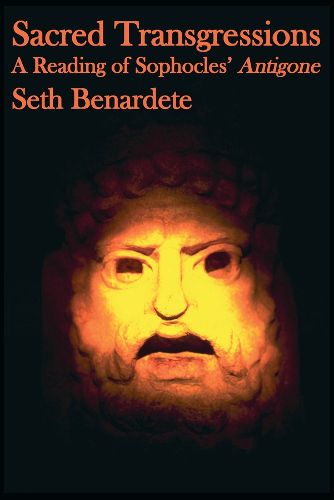Sacred Transgressions
Seth Benardete

Sacred Transgressions
Seth Benardete
This detailed commentary on the action and argument of Sophocles’ Antigone is meant to be a reflection on and response to Hegel’s interpretation in the Phenomenology (VI.A.a-b). It thus moves within the principles Hegel discovers in the play but reinserts them into the play as they show themselves across the eccentricities of its plot. Wherever plot and principles do not match, there is a glimmer of the argument: Haemon speaks up for the city and Tiresias for the divine law but neither for Antigone. The guard who reports the burial and presents Antigone to Creon is as important as Antigone or Creon for understanding Antigone. The Chorus too in their inconsistent thoughtfulness have to be taken into account, and in particular how their understanding of the canniness of man reveals Antigone in their very failure to count her as a sign of man’s uncanniness: She who is below the horizon of their awareness is at the heart of their speech. Megareus, the older son of Creon, who sacrificed his life for the city, looms as large as Eurydice, whose suicide has nothing in common with Antigone’s. She is ‘all-mother’; Antigone is anti-generation.
This item is not currently in-stock. It can be ordered online and is expected to ship in approx 4 weeks
Our stock data is updated periodically, and availability may change throughout the day for in-demand items. Please call the relevant shop for the most current stock information. Prices are subject to change without notice.
Sign in or become a Readings Member to add this title to a wishlist.


